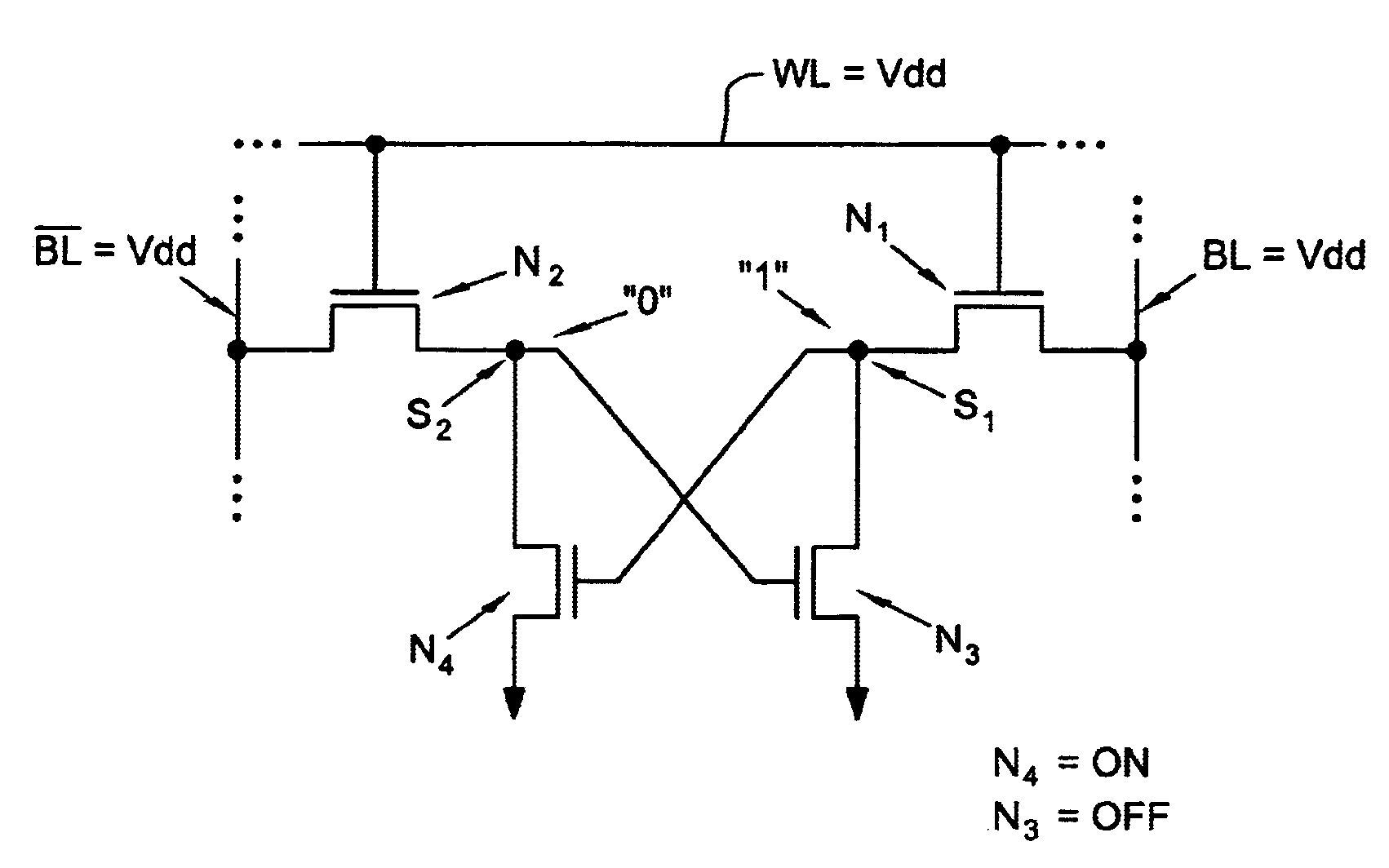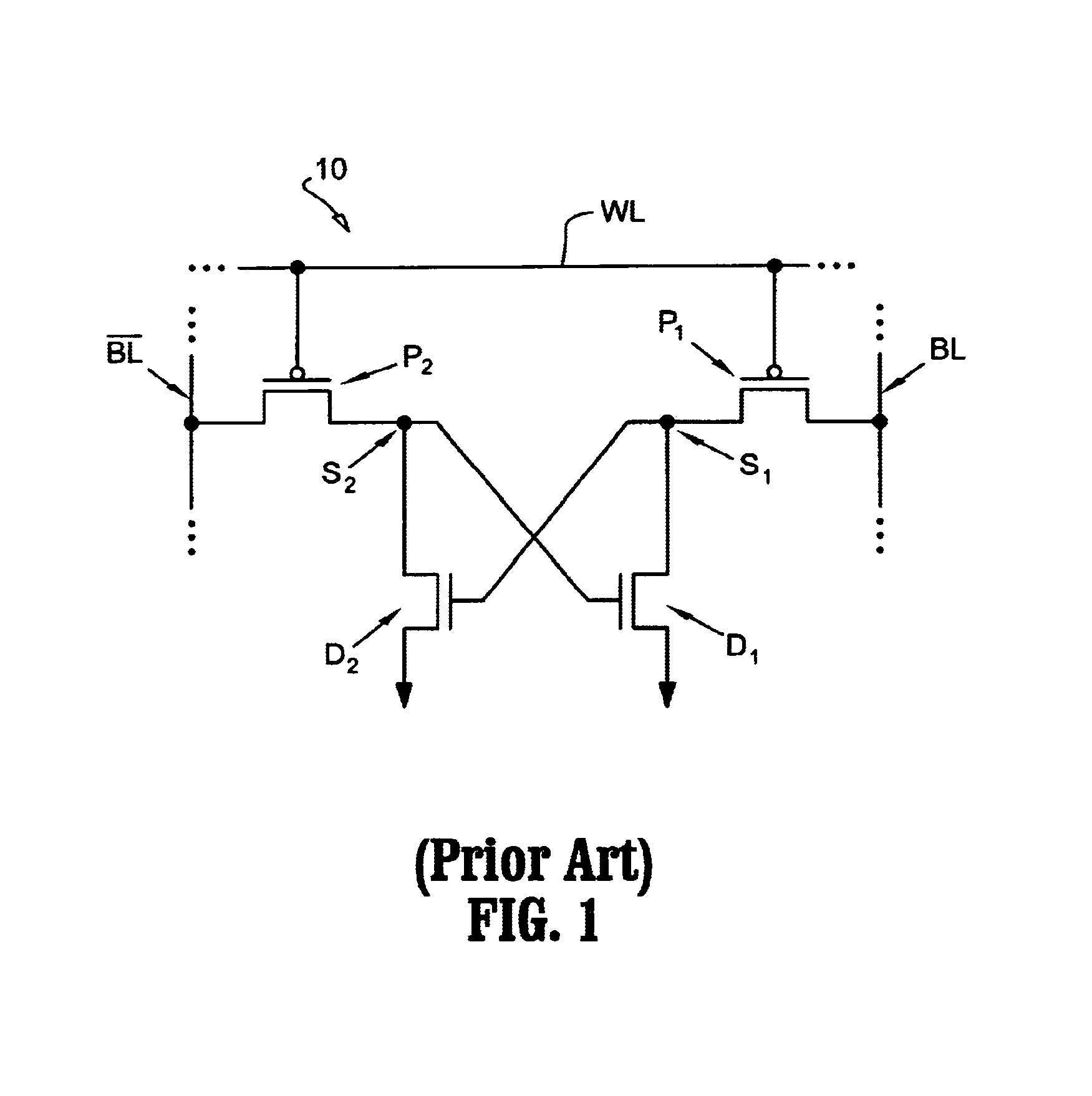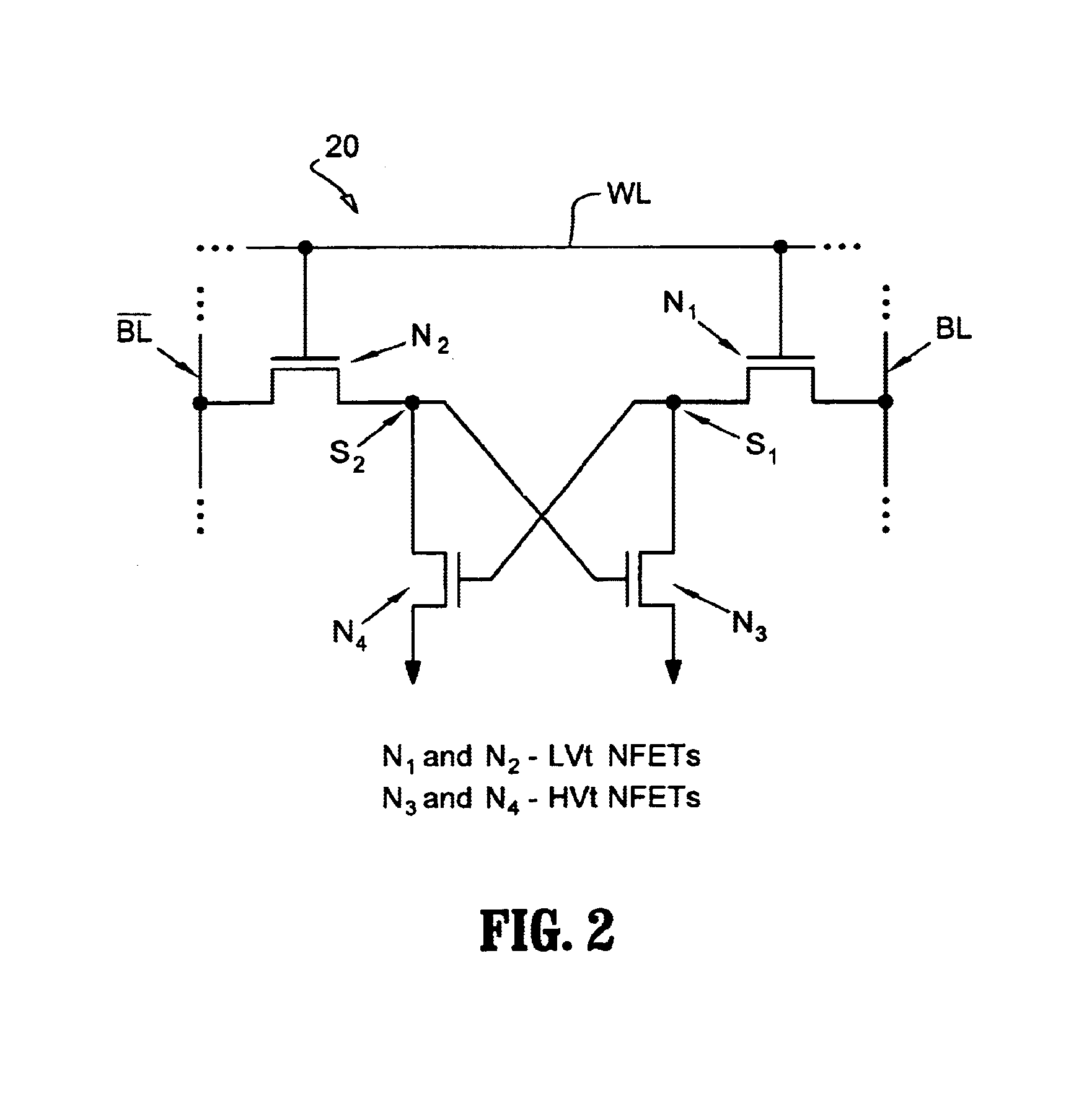Loadless NMOS four transistor dynamic dual Vt SRAM cell
a sram cell, dynamic dual-vt technology, applied in semiconductor devices, digital storage, instruments, etc., can solve the problems of limiting the density of memory cells, limiting leakage, etc., to achieve high-integration semiconductor memory devices, increase the i/o speed of data access operations, and improve performan
- Summary
- Abstract
- Description
- Claims
- Application Information
AI Technical Summary
Benefits of technology
Problems solved by technology
Method used
Image
Examples
Embodiment Construction
[0021]Exemplary embodiments of the present invention comprise architectures for loadless 4T SRAM cells, and methods for operating such SRAM cells, which can provide highly integrated semiconductor memory devices while providing increased performance with respect to data stability and increased I / O speed for data access operations, for example.
[0022]In general, in one embodiment of the invention, a loadless, 4T SRAM cell comprises a pair of access transistors and a pair of pull-down transistors, all of which are implements as n-channel transistors (NFETs or NMOSFETS). A loadless 4T SRAM cell architecture according to the present invention in which all transistors are NFETs (or NMOSFETs), for example, provides about a 50% decrease in cell area as compared to conventional 6T SRAM cells, as well as a significant decrease in the cell area as compared to conventional loadless, 4T SRAM cells that use PFETs (or PMOSFETs) as access transistors.
[0023]In another embodiment of the invention, a ...
PUM
 Login to View More
Login to View More Abstract
Description
Claims
Application Information
 Login to View More
Login to View More - R&D
- Intellectual Property
- Life Sciences
- Materials
- Tech Scout
- Unparalleled Data Quality
- Higher Quality Content
- 60% Fewer Hallucinations
Browse by: Latest US Patents, China's latest patents, Technical Efficacy Thesaurus, Application Domain, Technology Topic, Popular Technical Reports.
© 2025 PatSnap. All rights reserved.Legal|Privacy policy|Modern Slavery Act Transparency Statement|Sitemap|About US| Contact US: help@patsnap.com



